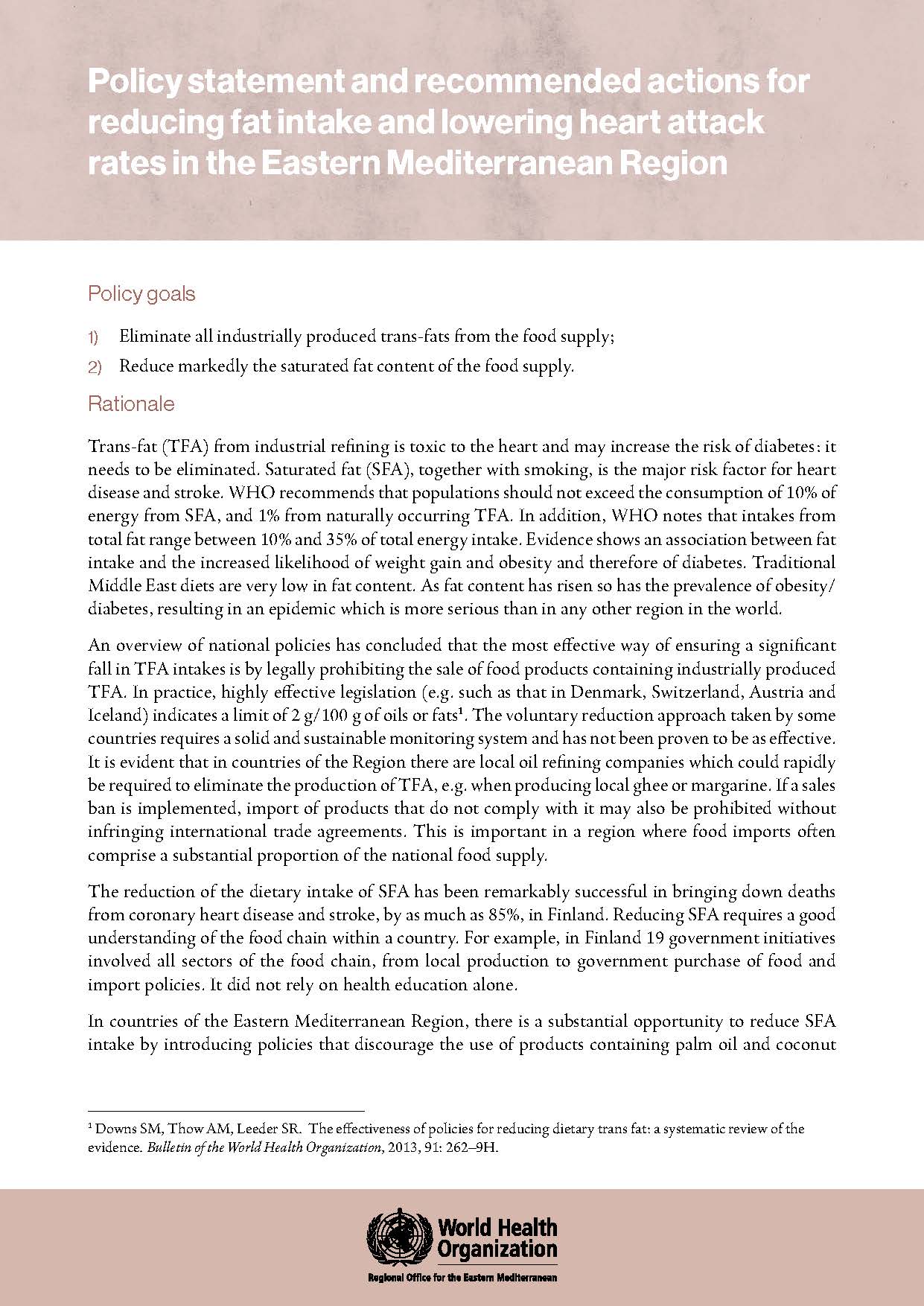
Non-conjugated-industrially-produced-trans fatty in Lebanese foods: the case of Elaidic and Linolelaidic Acids
Publication date: 2021
The intake of industrially-produced trans-fatty acids is associated with an increased risk of heart attacks and death from coronary heart disease. This study aims to determine industrially-produced trans-fatty acids distribution of Lebanese traditional foods, especially regarding Elaidic acid (EA; 9t18:1) and Linolelaidic acid (LEA; 9t12t18:2). The findings show that categories with the highest industrially-produced trans-fatty acids levels included Riz a dajaj, Shawarma Lahma, Pain au lait, English cake, chocolate wafers, and margarines. The Lebanese government and ministries should strive to raise public awareness about the issue and lobby for implementing anti-industrially-produced trans-fatty acids laws either on the level of national industries or on the level of food products importation.

Assessment of industrially produced trans fatty acids in traditional dishes, Arabic sweets, and market food products and its risks on non-communicable diseases in Lebanon
Publication date: 2021
Industrially produced trans-fatty acids are a major dietary contributor to noncommunicable diseases worldwide. The main objectives of this article are to: (1) Assess industrially produced trans fatty acids levels in frequently consumed traditional dishes, Arabic sweets, processed foods, butter, and margarine in Lebanon. (2) Establish a steppingstone for required policies and regulations to mandate limits of trans fatty acids levels in oils and foods imported or produced locally. The findings show that about 93% of the products tested in Lebanon, between 2019 and 2021, met the World Health Organization recommendations, while about 7% exceeded the limit.

Ultra-processed foods are the major sources of total fat, saturated and trans-fatty acids among Tunisian preschool and school children: A cross-sectional study
Publication date: 2021
Excessive intake of fat and fatty acids is associated with major health hazards such as obesity or chronic diseases. The aim of this study was to provide the first data on total fat, saturated fatty acids and trans fatty acids intakes and their major food sources in Tunisian children. The study concludes that the implementation of a relevant strategy for fat reduction, especially from ultra-processed foods which are considered low nutrient energy-dense products, is needed to promote health among children and prevent diet-related chronic diseases.

A systematic review of trans fat reduction initiatives in the Eastern Mediterranean Region
Publication date: 2021
High intakes of trans fatty acids (TFA), particularly industrially-produced TFA, are implicated in the etiology of cardiovascular diseases, which represent the leading cause of mortality in the Eastern Mediterranean Region (EMR). This systematic review aims to document existing national TFA reduction strategies in the EMR, providing an overview of initiatives that are implemented by countries of the Region, and tracking progress toward the elimination of industrially-produced TFA. This study showed that further action is needed to initiate TFA reduction programs in countries that are lagging behind, and to ensure rigorous implementation and evaluation of ongoing programs.

Analysis of fat content with special emphasis on trans isomers in frequently consumed food products in Egypt: the first steps in the trans fatty acid elimination roadmap
Publication date: 2021
Trans fatty acid intake is a risk factor for coronary heart diseases and cancer. Egypt, considered among the highest trans fatty acid consumers in the world, lacks proper dietary analysis of trans fatty acids. This cross-sectional study aimed to analyse trans fatty acids in traditional and frequently consumed food products. This study revealed that around one-third of products in the Egyptian market have a high trans fatty acid content. This calls for urgent legislative action to regulate composition.

Fatty acids quality in Middle Eastern traditional dishes, Arabic sweets and market foods frequently consumed in Lebanon
Publication date: 2021
The prevalence of diet-related noncommunicable diseases is on the rise in countries of the Eastern Mediterranean Region, including Lebanon. This study provides data on fatty acid profiles and ratios of Lebanese composite dishes, Arabic sweets, and market foods. The findings show that there is a need to prioritize fat content in foods and consider processing modifications in the food production system with the aim of achieving a higher polyunsaturated to monounsaturated (P:M:S) ratio intake among the population.

Understanding the complexities of prevalence of trans fat and its control in food supply in Pakistan
Publication date: 2020
Pakistan is among the nations with a high intake of trans fatty acids, a major dietary risk factor of noncommunicable diseases. This study reviews the trans fatty acids content reported in industrially-produced foods and discusses the regulatory landscape for trans fatty acids, to facilitate the required policy changes in Pakistan and ultimately eliminate the trans fatty acids burden from industrial food products. The authors recommend to: (1) promote actions toward replacement of traditional vanaspati ghee/bakery fats with healthier alternatives; (2) develop and implement best regulatory practices in line with WHO recommendations; and (3) amend food labelling laws so that clear information will be provided to inform consumers’ healthy food choices.

Fat intake reduction strategies among children and adults to eliminate obesity and noncommunicable diseases in the Eastern Mediterranean Region
Publication date: 2018
This paper discusses the noncommunicable disease burden and estimates the saturated fatty acids and trans fatty acids intake and their sources in the countries of the Eastern Mediterranean Region. It also reviews the evidence on health impacts of reducing saturated fatty acids and trans fatty acids intake, introduces regional strategies to reduce fat intake and provides examples of actions taken by countries.

Policy statement and recommended actions for reducing fat intake and lowering heart attack rates in the Eastern Mediterranean Region
Publication date: 2014
This policy statement was published in 2014 with the goal of identifying the priority actions for Member States to eliminate all industrially produced trans-fats from the food supply as well as to reduce markedly the saturated fat content of the food supply. The suggested actions are divided into three phases which span over a period of two-years from 2014 to 2015.








